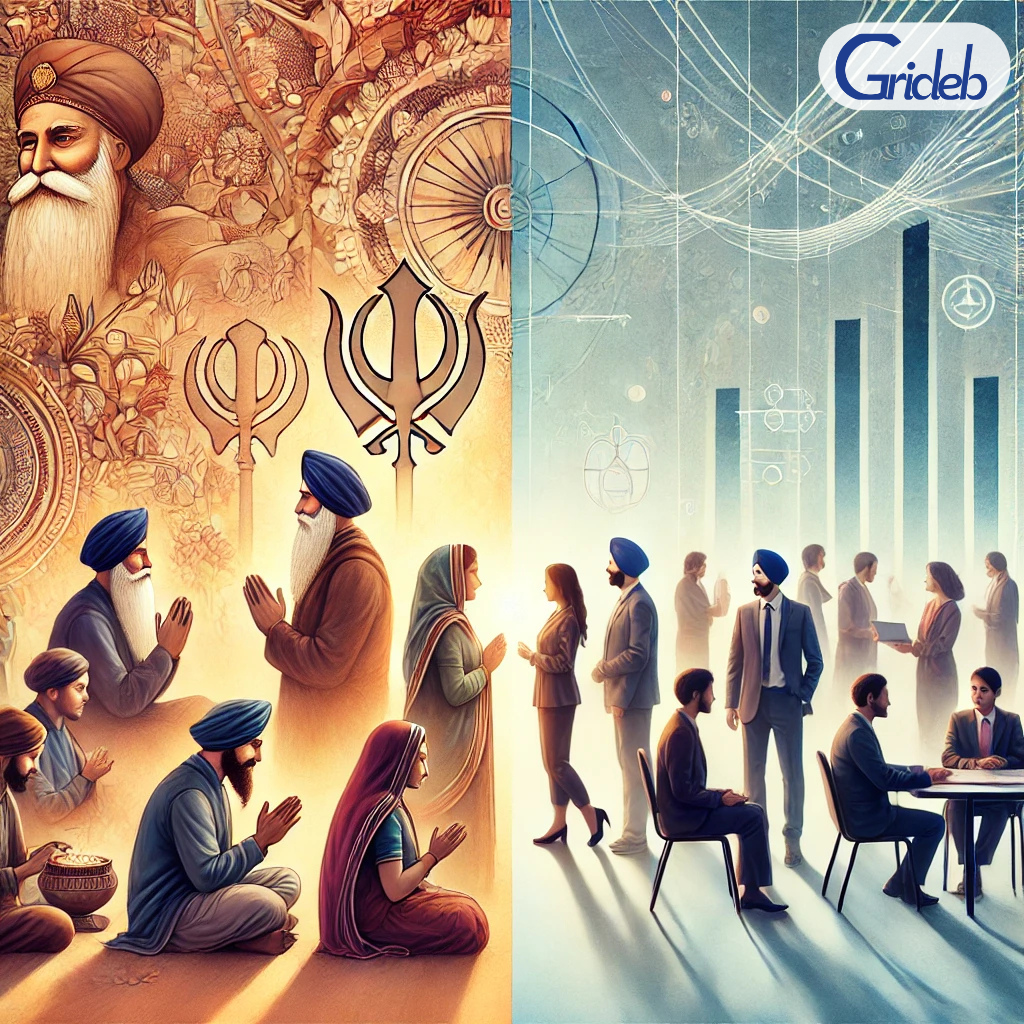Gurpurab Meets MLM: Infusing Timeless Values into Modern Business Culture

Gurpurab Meets MLM: Infusing Timeless Values into Modern Business Culture
Every year, millions of Sikhs around the world celebrate Gurpurab, commemorating the birth of Guru Nanak Dev Ji, the founder of Sikhism. This auspicious occasion, also known as Guru Nanak Jayanti, is not only a festival but also a powerful reminder of the teachings and values that Guru Nanak lived by—values like equality, selfless service, truth, and community. These principles remain profoundly relevant today, even in the evolving landscape of modern business.
Interestingly, in today's business world, multi-level marketing (MLM) has gained momentum, attracting those eager for financial independence and a sense of community. Though vastly different from spiritual teachings, MLM is a business model that also relies on building communities and encouraging ambition. In this blog, we’ll explore how the principles celebrated during Gurpurab can bring deeper meaning to MLM practices, and what the MLM trend could gain from applying timeless values.
1. The Essence of Gurpurab and Its Teachings
Gurpurab, especially Guru Nanak Dev Ji’s birthday, is celebrated to honor a legacy of teachings that focus on selflessness, humility, and integrity. Guru Nanak preached a life rooted in compassion, equality, and an unwavering commitment to truth. His life and words emphasized that everyone, regardless of background, deserves respect and dignity. The celebrations are marked by prayers, community service (seva), and the serving of free meals (langar), where people of all walks of life sit together as equals.
This sense of belonging, service, and unity is a significant part of the Gurpurab celebration, reminding us that genuine connections and ethical living are the cornerstones of a meaningful life.
2. The Rise of MLM and the Quest for Community and Success
Multi-level marketing (MLM) has become a popular business model that, like many other business structures, builds on a community of individuals working toward shared success. MLM companies often encourage their members to not only sell products but also recruit others into the organization, creating layers or “levels” that allow for potential growth within a network.
Many people are drawn to MLM due to its promise of personal and financial growth, flexible schedules, and the idea of working with a team. Yet, despite the allure, MLM has faced its share of criticism, especially for its focus on profit over ethics, lack of transparency, and occasional high-pressure tactics. This is where the core values of Gurpurab might offer a refreshing lens for MLM practices.
3. Bridging Gurpurab Values with MLM: Commonalities and Contrasts
At the heart of both Gurpurab and MLM lies a shared emphasis on community, although approached from different perspectives. For example, Sikhism promotes selfless service and collective progress, which resonates with the idea of a close-knit community working together, a concept seen in MLM organizations.
However, a key difference emerges in intention. While Guru Nanak’s teachings emphasize selflessness, honesty, and respect, some MLM models can seem driven primarily by profit motives. This contrast raises a valuable question: Can MLM be reshaped to embrace ethical values that prioritize people over profit? Just as Guru Nanak championed values-driven living, so too can the MLM community benefit from transparency, fairness, and a commitment to ethical conduct.
4. Applying Gurpurab Teachings to Create Better MLM Cultures
Imagine an MLM culture inspired by the essence of Gurpurab: a focus on ethical business practices, fair opportunities, and genuine community support. MLM practitioners who draw on these values could build stronger relationships with their teams and customers, ensuring trust and transparency are at the heart of every transaction.
By prioritizing honesty, MLM leaders could foster an environment that empowers individuals not only to succeed financially but also to feel valued and respected. Adopting a values-driven approach would mean practicing compassion, sharing knowledge selflessly, and providing an inclusive space that goes beyond mere profit-making.
5. Consumer Awareness and Responsible Participation
Guru Nanak’s teachings inspire us to live responsibly, both spiritually and practically. For potential MLM participants or customers, this translates into being informed and aware. Researching a company’s history, understanding its compensation structure, and assessing its transparency can help individuals make ethical choices aligned with Guru Nanak’s call for honesty and integrity.
Similarly, by promoting responsible participation, MLM organizations can work to shed negative perceptions and establish themselves as honest, purpose-driven ventures. This shift would ultimately benefit both the organization and its members, creating a more trusted and sustainable business model.
6. Conclusion: Lessons from Gurpurab for Modern Business Practices
In today’s fast-paced world, where success often seems to hinge on profit alone, Guru Nanak’s teachings remind us that true success is rooted in values. Gurpurab isn’t just a celebration—it’s an opportunity to reflect on the principles of ethical living and meaningful work. By embracing these teachings, MLM and similar business models can find a balanced path that fosters integrity, community, and mutual growth.
As we celebrate Gurpurab, let’s take inspiration from Guru Nanak’s legacy and imagine a world where businesses, whether MLM or otherwise, are not solely defined by profits but by purpose and principles. This approach not only honors the spirit of Gurpurab but also brings us closer to building a business culture that serves humanity in meaningful, impactful ways.